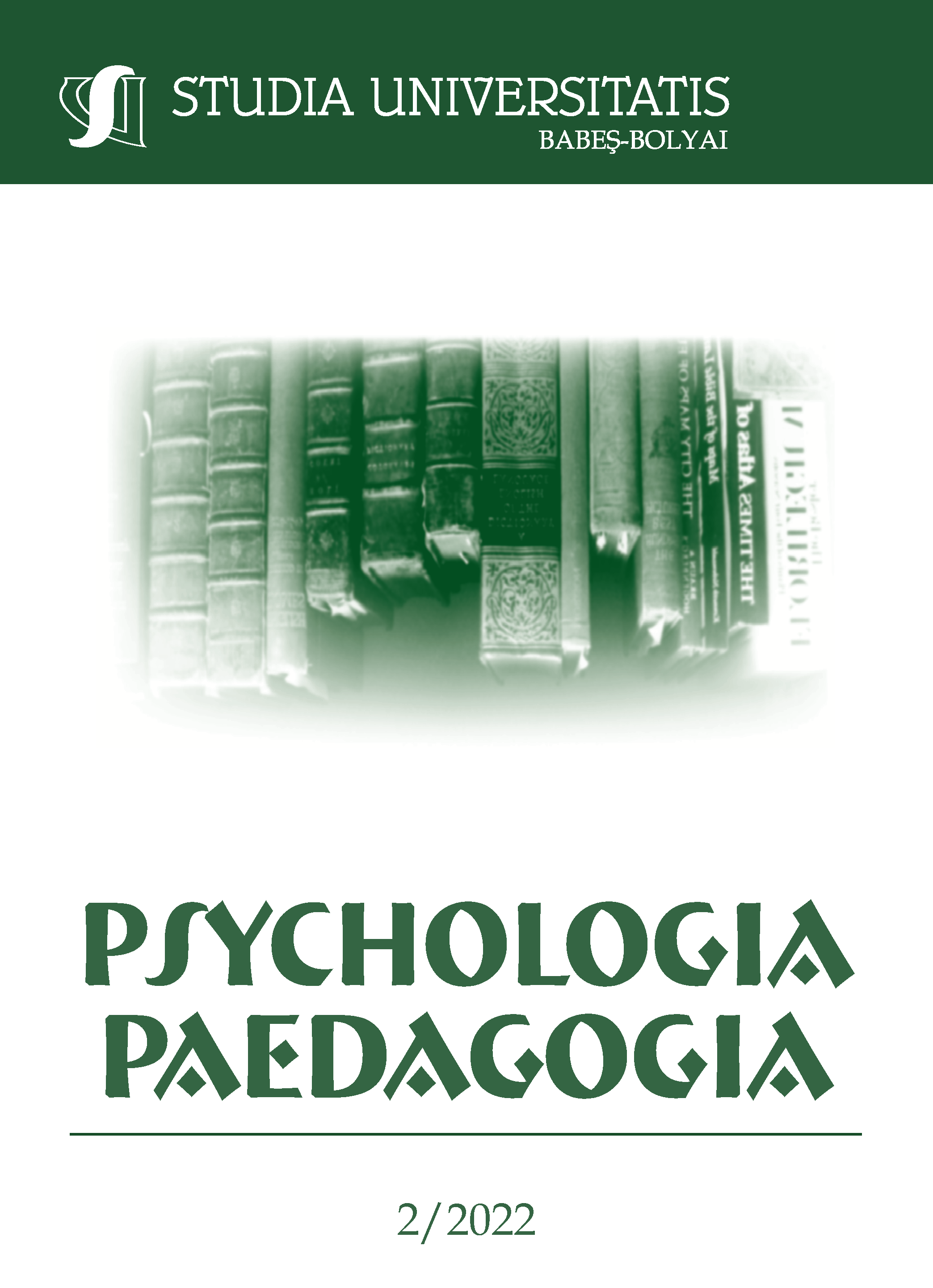TEACHING MUSIC EDUCATION AT PRIMARY SCHOOL IN ROMANIA: A QUALITATIVE ANALYSIS ON TEACHERS TRAINING
DOI:
https://doi.org/10.24193/subbpsyped.2022.2.07Keywords:
Musical skills, initial teacher education, teachers, primary school.Abstract
A quality education is a major goal of each country because it is a predictor of the success of future societies. When it comes to quality education, initial teacher training should be a landmark of the universities that prepare the future teachers. Music education can contribute to the development of quality education from a young age of children, needing, therefore, well trained teachers to perform it. Exposing children to quality music education in primary school does not restrict to the class hours. It might cover different learning situations, as music can accompany most of the teaching hours, in an integrative manner, and music activities, as chorus, can contribute to developing key competences of kids, ranging from the esthetic and cultural ones, till the social or cognitive ones. The article aims to highlight the importance of training musical skills that the teaching staff who teaches music education at primary school in the national education system in Romania must have. Expert oppinions are echoed in the article, drawn from 19 semistructured interviews carried out in May-June 2021. The diagnosis and proposals of academics training the respective teachers, of experienced practitioners guiding and evaluating teachers in schools, point towards possible revision of curriculum in initial teacher education, to ensure better trained professionals to teaching music in primary education.References
Allen, S. (2008). Consultanță muzicală în învățământul primar. British Journal of Music Education, 5, p. 217-240. http://journals.cambridge.org/abstract_S0265051700006641
Button, S. (2006). The teaching of music in the primary school by the non-music specialist. Cambridge University Press, 23:1, 23-38.
Campbell, S. (2013). Motivations, and methodology and implications. Educational Neuroscience (43), p.7-16.
Curtis, L., Fallin, J. (2014). Neuroeducation and Music. National Association for Music Education, p.51-56.
European Commission (2017). National Reforms in School Education. https://eacea.ec.europa.eu/national-policies/eurydice/content/national-reforms-school-education-46_en
Facts and Details Website (Japan, 2014). School Curriculum in Japan. http://factsanddetails.com/japan/cat23/sub150/item2789.html?fbclid=IwAR0HZAHqHSSOzSC3aLbJwovz2PRoisV2jKKnbl6vzSQ1_u5w2WV-tSM3ZHs
Hincu, I., Filip, O. (2018). Educational experience in music education. National Bibliometric Institute, volume II. p.151-154.
Klein, E. (2019). Music technology and Future Work Skills 2020: An employability mapping of Australian undergraduate music technology curriculum. International Journal of Music Education. Vol. 37(4) 636-653.
Letts, R. (2019). Music education in China. https://musictrust.com.au/loudmouth/music-education-in-china/
Locker, M. (2014). This Is How Music Can Change Your Brain. https://time.com/3634995/study-kids-engaged-music-class-for-benefits-northwestern/
Menehan, K. (2013). Singing and Healthy Children. https://www.chorusamerica.org/singers/singing-and-healthy-children
Monitor on Psychology (2018). Neural Encoding of Music. https://www.brainvolts.northwestern.edu/
ME: Music Education Network. Music Education in Schools. http://menet.mdw.ac.at/menetsite/english/topics.html?m=1&c=0&lang=en
Downloads
Published
How to Cite
Issue
Section
License
Copyright (c) 2022 Studia Universitatis Babeș-Bolyai Psychologia-Paedagogia

This work is licensed under a Creative Commons Attribution-NonCommercial-NoDerivatives 4.0 International License.





